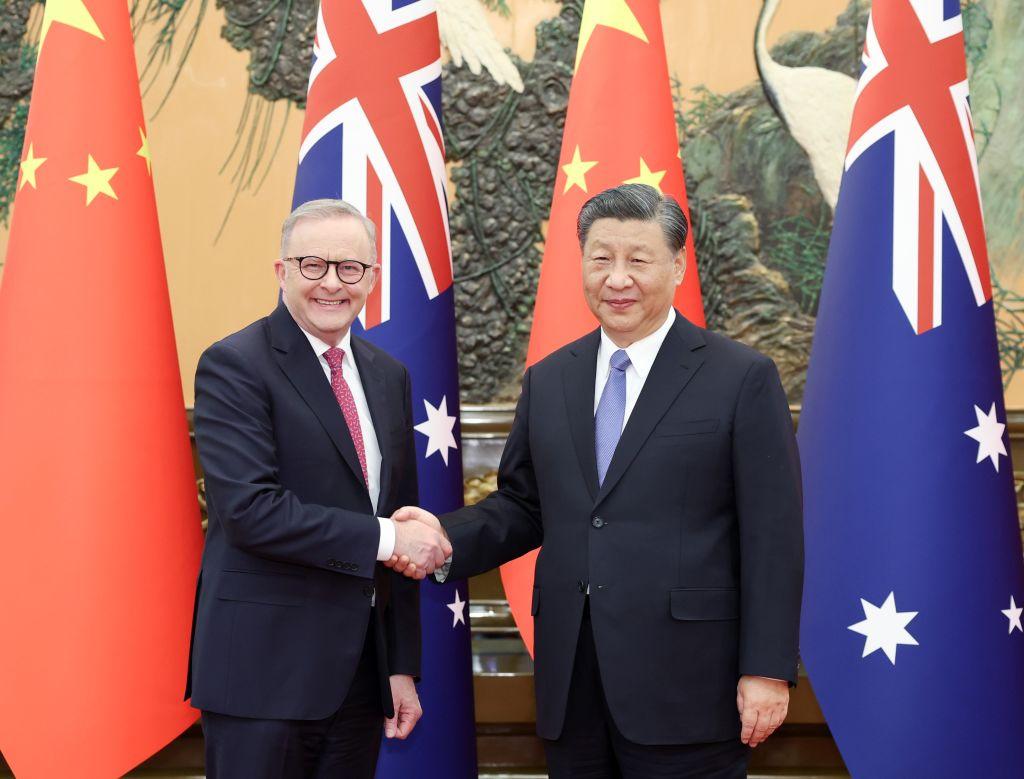
Geopolitics is driving the dangerous strategic realities that Australia faces.
Beijing’s expansionist agenda is seen through its military aggression and commitment to undermining and changing international rules; Russia continues its revisionist war against Ukraine and a disruptive foreign policy; and we were reminded on 7 October that terrorism remains a top security threat with global implications.
However, the way Australia responds is within our control. Strong foreign and security policies, matched by serious defence investment, can ensure that potential adversaries looking to upend the status quo are deterred from dragging us into conflict.
There are two clear, related priorities. The first is to ensure that our foreign and defence policies are consistent and not at odds—the latter being a misstep that seems increasingly likely. The second priority is to invest properly in our defence force.
The defence and intelligence communities have made the hard-headed strategic assessment—articulated in the defence strategic review—that Beijing’s assertiveness is the greatest threat to our security and needs to be checked.
Our diplomacy, meanwhile, has been seeking ‘stabilisation’, in which we improve the atmospherics of the Australia–China relationship, reduce the focus on areas of disagreement and look for cooperation.
It’s a laudable goal, but is it sustainable or even consistent with our strategic assessments?
There are signs that stabilisation is coming at a cost to our strategy of seeking peace through strength and deterring Chinese aggression by having a highly capable defence force that we will deploy to support regional stability.
We have been too quiet about Chinese breaches of international rules, such as the bullying of Philippines vessels in the South China Sea. When the Chinese navy threatened the safety of Australian personnel, the government sent mixed signals as to how seriously it took the incident, with Defence Minister Richard Marles issuing a clear statement but Prime Minister Anthony Albanese unable to say whether he had raised the issue with Chinese President Xi Jinping.
That inconsistency removed the opportunity for what should have been a moment of Australian unity in the face of direct confrontation and injury to defence personnel.
There’s a growing risk of a defence and foreign policy gulf in which we pull our punches diplomatically while trying to show military credibility through initiatives such as AUKUS and defence exercises. Indeed, it’s why there’s an inherent weakness in democracies viewing foreign policy as soft power and defence policy as hard power with distinct roles, while our authoritarian rivals see them as fused.
Our ability to deter aggression will be undermined if our defence policy suggests we face serious threats while our diplomatic communications suggest we don’t.
Good diplomacy isn’t about denying differences but confronting them with clear affirmation of the legitimacy of Australia’s national interests, and our right to protect them. Otherwise, we risk playing into Beijing’s strategy of claiming that any response to Chinese provocation amounts to Australian escalation.
Of course, providing assurances is an important companion to deterrence. The West is justifiably assuring Beijing that we don’t seek regime change in China, Taiwanese full independence, or containment of Chinese growth where it is rule-abiding and peaceful.
Such messages help reduce mistrust, but assurances alone provide no deterrence, only incentivising more bad behaviour, which is why they must be accompanied with unequivocal signals that we will respond when Beijing breaches rules.
Failure to do so is the mistake that Europe made with Moscow, relying too heavily on assurance that NATO posed no threat to Russia, even while Vladimir Putin escalated aggression after 2008 and as Europe wallowed in complacency with meagre defence spending.
If we don’t project the strength to match the reality of the threats, we risk making the dangerous misjudgement that Winston Churchill implored England to reverse in 1932 when he said: ‘I cannot recall any time when the gap between the kind of words which statesmen used and what was actually happening in many countries was so great as it is now. The habit of saying smooth things and uttering pious platitudes and sentiments to gain applause, without relation to the underlying facts, is more pronounced now than it has ever been in my experience.’
The recent AUKUS defence ministers’ meeting showed progress in developing capability but also importantly expressed clear collective intent. The ministers’ statement that ‘AUKUS contributes to integrated deterrence by pursuing layered and asymmetric capabilities’ sent a clear signal to Beijing.
These signals can’t be limited to defence ministers—our long-term sovereignty requires deterrence to be a national priority, baked into our economic and industrial policies, bringing industry and the public along the journey and not merely surprised when crisis hits.
At the bottom line, the Albanese government needs to invest in defence in a way that matches the rhetoric that statements such as the DSR have expressed. Resourcing defence to match a damped-down foreign policy aim of stabilisation may result in short-term savings but will only lead to more spending down the track.
As ASPI’s budget analysis in May stated, the additional funding the government has promised beyond the forward estimates period needs to be brought forward. Budgets are tight, but we are not going to deter aggression unless we are prepared to put real money into defence capabilities.
It would be wonderful if all states got along and if all conflict and unfair competition could be resolved by diplomatic niceties. History shows this is wishful thinking.
Diplomacy is vital but it is ineffective if viewed as the good cop to defence’s bad cop—a message to adversaries that we don’t have the willingness and competence to use our hard power.
Meanwhile, our own industry perceives a lack of seriousness and our public senses a lack of need and justification for investment. Indeed, it is defence investment that helps ensure diplomacy can focus on managing, not ignoring, tension.
It is the will to confront difficult realities and think through worst-case scenarios that provides the greatest chance of developing effective strategies to deter them, and to be best prepared if they do eventuate.